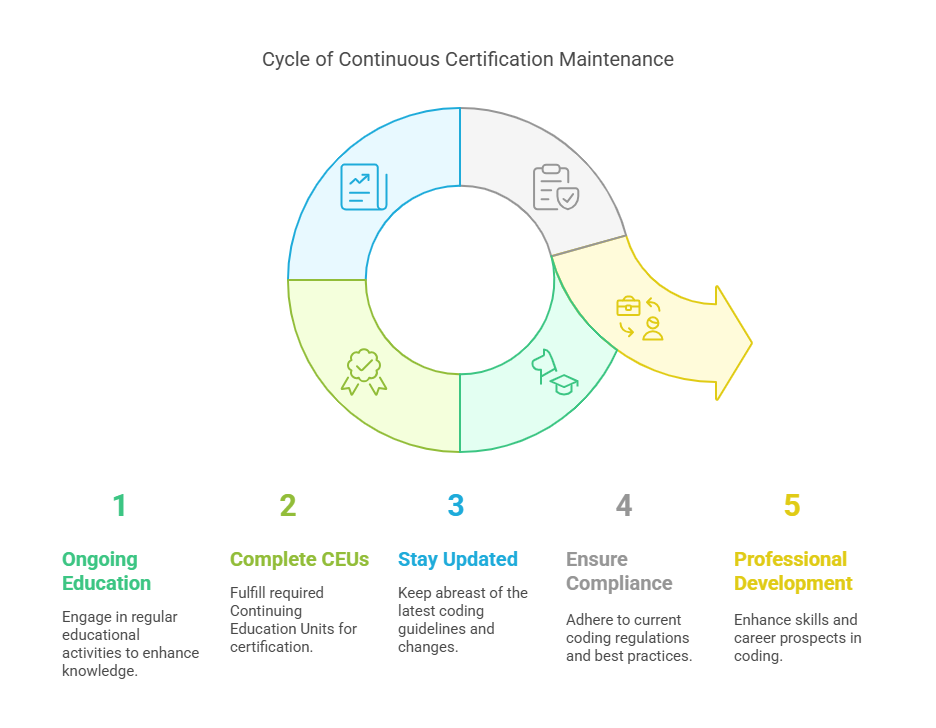Essential Guide to ICD10 Certification for Aspiring Medical Coders
ICD-10 certification is a professional credential that highlights an individual's expertise in medical coding, specifically within the ICD-10-CM (Clinical Modification) coding guidelines. This certification is crucial for medical coders to demonstrate their proficiency in documenting diagnoses and procedures in the healthcare field. Obtaining this certification not only ensures that medical coders stay current with the latest industry standards but also opens up opportunities for career growth. It is recognized across the healthcare industry as a mark of excellence and can significantly enhance earning potential.

Understanding ICD-10-CM Coding Fundamentals
ICD-10-CM coding is a cornerstone of modern healthcare documentation, used to record diagnoses and medical procedures accurately. These codes play a vital role in telling the story of a patient’s healthcare journey. A solid understanding of ICD-10-CM coding fundamentals is essential for medical coders to ensure that they adhere to industry best practices and regulatory guidelines. Earning a medical billing and coding certification from a trusted organization like AMBCI can help professionals gain the knowledge needed for accurate and compliant coding. Proper coding is critical to achieving compliance, avoiding errors, and supporting the effective management of patient data.
Preparing for ICD-10 Certification
Preparation for the ICD-10 certification exam requires a comprehensive understanding of the ICD-10-CM coding guidelines. This includes both the general coding principles and specific chapter-based guidelines. Aspiring medical coders should consider enrolling in online courses or training programs that focus on ICD-10-CM coding and diagnosis coding. These programs often include review questions and practice exercises, which are invaluable for reinforcing learning and ensuring readiness for the exam. Completing such training programs helps candidates build the confidence they need to succeed in the certification process.

Choosing the Right Training Program
Selecting the appropriate training program is critical for individuals aiming to obtain ICD-10 certification. When considering a program, it’s important to ensure that it provides comprehensive training in ICD-10-CM coding, including access to up-to-date code books and online resources. Flexible course schedules are also important, as they allow students to learn at their own pace, fitting their studies around personal and professional commitments. A well-rounded training program should offer practical exercises that prepare students for the complexities of real-world coding scenarios.
Mastering ICD-10 Coding Guidelines
Mastery of ICD-10 coding guidelines is essential for anyone pursuing a career in medical coding. Understanding the ICD-10-CM code set and its specific chapter-based guidelines enables coders to make precise code selections and apply them correctly in different clinical settings. Aspiring coders should focus on developing their ability to use the alphabetic index and tabular list to find the appropriate codes. Additionally, knowledge of code selection, sequencing, and the rules surrounding them ensures that coders can accurately document patient diagnoses and procedures.
Career Opportunities and Advancement with ICD-10 Certification
ICD-10 certification can significantly enhance career opportunities for medical coders. This credential opens doors to various positions in hospitals, clinics, private practices, and healthcare organizations. Certified coders are in high demand due to the increasing complexity of healthcare billing and documentation. Furthermore, certified medical coders often have the opportunity to advance to specialized or leadership roles, including positions in coding auditing, compliance, or medical records management. As healthcare evolves, certified coders can find numerous paths for career growth and increased earning potential.

Maintaining Certification and Staying Current
Once you have achieved ICD-10 certification, it is important to maintain your credential by staying up-to-date with the ever-evolving coding guidelines. This requires ongoing education and training, typically through the completion of Continuing Education Units (CEUs). Staying current with industry changes ensures that medical coders remain compliant with coding regulations and best practices. Continuing education also supports professional development and helps coders stay competitive in the field. Regularly updating skills and knowledge is essential for maintaining certification and advancing within the medical coding profession.

6 Lesser-Known Facts About ICD-10 Certification
ICD-10 is Global:
More Than Just Numbers:
American Health Information Management Association - ICD-10 Overview
ICD-10 Adoption in 2015:
HHS - ICD-10 Implementation
Over 70,000 Codes:
Centers for Medicare & Medicaid Services - ICD-10 Codes
American Academy of Professional Coders - ICD-10
ICD-10 Helps in Research:
Coding Changes Over Time:
FAQs About ICD-10 Certification
-
The ICD-10 certification exam is typically composed of multiple-choice questions that test your knowledge of coding guidelines, chapter-specific rules, and correct code selection.
-
Preparation time varies, but most aspiring coders can expect to spend anywhere from 3 to 6 months preparing for the exam, depending on their prior experience and the training program they choose.
-
The cost for ICD-10 certification can range from $300 to $500, including exam fees and training materials. Some organizations may offer financial assistance or discounts for training programs.
-
ICD-10 certification typically needs to be renewed every two years. This involves completing continuing education and staying up-to-date with any changes to the coding guidelines.
-
Yes, there are various online programs and courses available for ICD-10 certification, offering flexible learning schedules and comprehensive training to prepare for the certification exam.
As of 2025, the ICD-10-CM code set continues to evolve with updates issued annually. The CDC and the National Center for Health Statistics (NCHS) regularly update the codes to reflect new medical conditions, procedures, and advancements in healthcare. Coders must stay informed about these updates to ensure they are using the most accurate and current codes in their documentation. Additionally, advancements in technology, such as AI-assisted coding, are being integrated into healthcare systems, offering coders new tools for accuracy and efficiency.
